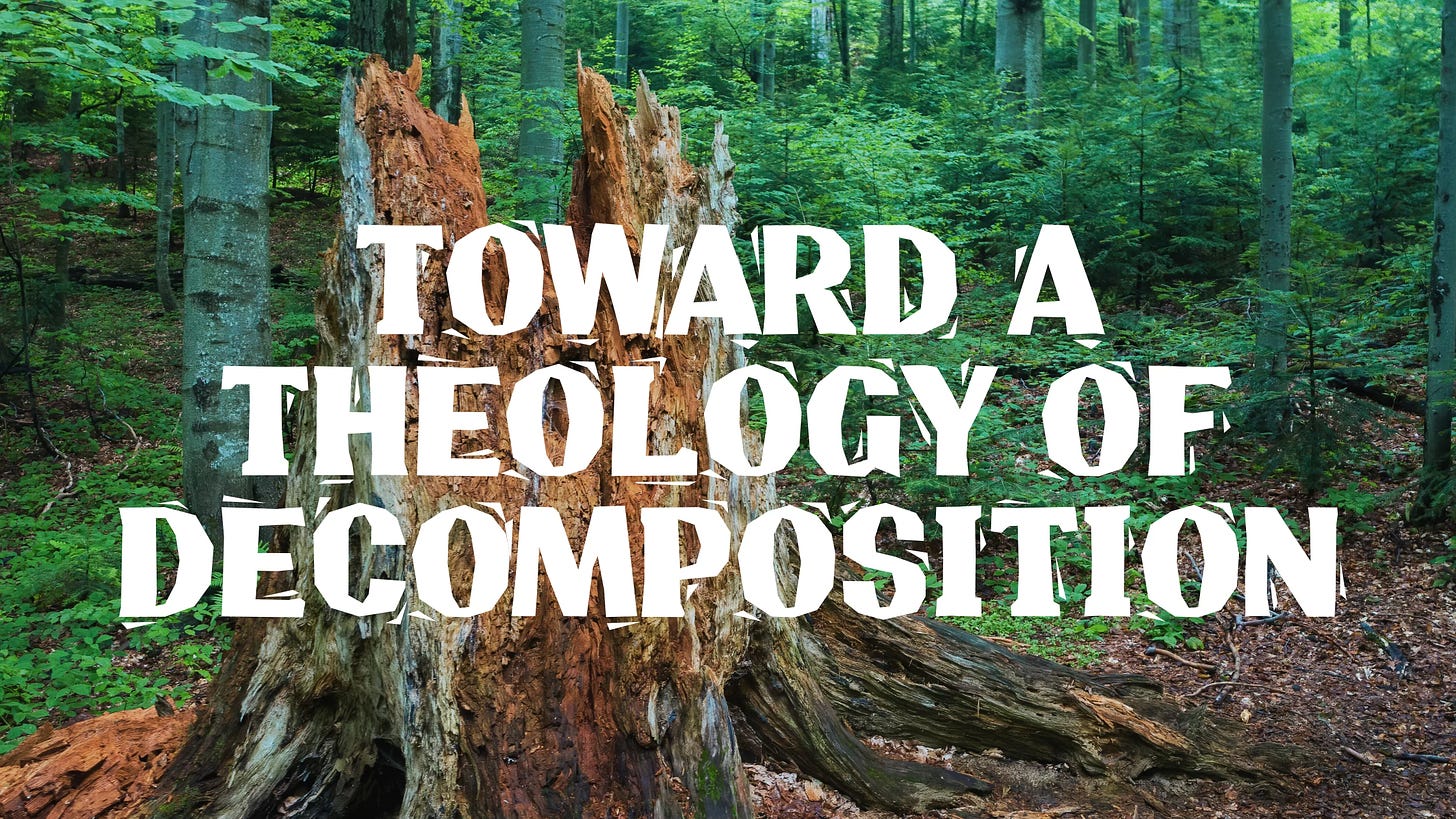This paper is the final paper for the Theologies of Social Transformation class I took over the Spring term. It exists as the final paper in a series of three papers over the course that seek to build off of each other. I was not really satisfied with this paper, but hope to return to parts of what I am working on in my thesis work sometime next year. This paper can be read as a stand alone, but I feel like it’s a much stronger and cohesive project when read with the other two papers. So if you haven’t read “What Does It Mean To Be Human In A World On Fire?” and “Ensoiled-Freedom” then feel free to check them out before you read the last installment.
While 98% of content on this substack is free access, my academic papers are reserved for paid subscribers. You can read the introduction from the paper below and/or gain access to the full paper by becoming a paid subscriber.
Introduction: Profiling the Polycrisis
The Polycrisis (a time of great disagreement, confusion, or suffering that is caused by many different problems happening at the same time so that they together have a very big effect) has not only subjected the biosphere to mass environmental degradation and inevitable collapse, but has also left the soil of our theological and moral imaginations contaminated and in need of reclamation.[1] While the problems at the root of this contamination are multiplicitous, by examining the health of our soil we can discover the ways in which the toxicity of neoliberalism both “clouds our understanding,” robbing us of the ability to remember that “God never intended for human beings to consider ourselves… separate from creation,” while simultaneously exhausting the soil of our theological and moral imaginations of essential nutrients, leaving our conceptions of humanity and divinity marred and in need of amendments.[2]Lost as we are in the smog of industrialization and a corrosive cloud of unknowing, the true nature of the Polycrisis becomes increasingly “invisibilized,” leaving us to live as amnesiacs dis/membered from our world, each other, andGod.[3] This amnestic state ofdis/memberment,which is fundamental to the structures of settler-colonialism, stand your ground culture, and ecological overshoot, is by design produced by a ritualized cycle of unknowing that “de-creates” the world in the same ways that these forces have sought to continually “unmake” the lives and bodies of Black people through suppressing the memory of our “deep entanglement” with all of creation, and the very mechanisms that perpetuate this fragmentation.[4]It is this insidious and destructive force of dis/memberment that necessitates a turn toward the compost heap, with its mycelial metaphors of de/composition, in search of a theology of ensoilment capable of fruiting into new theological formulations that facilitate re/membrance and spur us toward radical acts of resistance, and repair.[5]
[1] Polycrisis | Definition in the Cambridge English Dictionary, accessed April 18, 2024, https://dictionary.cambridge.org/us/dictionary/english/polycrisis; Thomas Homer-Dixon, “Why so Much Is Going Wrong at the Same Time,” Vox, accessed April 12, 2024, https://www.vox.com/future-perfect/23920997/polycrisis-climate-pandemic-population-connectivity; Soil reclamation is the process of remediating the soil after it has been polluted and/or drained of essential nutrients. Mercury contamination in our soil and watersheds has been directly linked to the development of neurodegenerative disease like Alzheimer's and dementia.
[2] Barbara J. McClure, Moving beyond Individualism in Pastoral Care and Counseling: Reflections on Theory, Theology, and Practice (Eugene, OR: Cascade Books, 2010),190–191; Steve Heinrichs, Buffalo Shout, Salmon Cry: Conversations on Creation, Land Justice, and Life Together (Waterloo, Ontario: Herald Press, 2013), 99.
[3] Bruce Rogers-Vaughn, Caring for Souls in a Neoliberal Age (New York Palgrave Macmillan Us: Imprint: Palgrave Macmillan, 2016),117, 126-128; As in my previous papers I have italicized “God” here in hopes of highlighting the limitations of this word considering the diversity of spiritual traditions and religious imaginations beyond the Abrahamic faith traditions and Christianity in particular. I have done this to be cognizant of how language can be used to reinforce the Christian hegemony and draw attention to how easy it is to take language for granted despite its clear and present inadequacies. I will continue this practice throughout this paper when not quoting the work of others.
[4] Cazdyn, “Disaster, Crisis, Revolution,” South Atlantic Quarterly 106, no. 4 (October 1, 2007): 647–62, https://doi.org/10.1215/00382876-2007-039, 649; William R. Catton, Overshoot: The Ecological Basis of Revolutionary Change (Urbana, IL: Univ. of Illinois P., 1982); Serene Jones, Constructive Theology: A Contemporary Approach to Classical Themes Minneapolis, MN: Fortress Press, 2008, 103; M. Shawn Copeland, Enfleshing Freedom: Body, Race, and Being Minneapolis, (MN: Fortress Press, 2010), 2-3, 128.
[5] “Ensoilment” and “ensoiled” throughout this paper play on the word “ensouled” within Christianity Theology and is meant to convey the notion of becoming radically reconnected to the Earth. I am using this language constructively to build upon notions of “embodiment” and “enfleshment” by rooting these concepts in the soil of the earth and an environmental paradigm capable of cultivating “land-connected selves,” while also expanding it to include ensoiled conceptions of composted divinity that give rise to new understandings of God, beyond the confines of rigid theological formulations, by planting them firmly and paradoxically together within the earth. Furthermore, I am using “de/composition” here as the inverse of “dis/memberment.” Seeking to allow the “/” to hold the space necessary for the cultivation of a theology that exists in the tensions between life and death to break down and build up the resources we need to resist and repair a world on fire.
Keep reading with a 7-day free trial
Subscribe to Compost Christianity to keep reading this post and get 7 days of free access to the full post archives.



